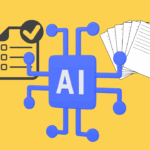Q: Can you give examples of 10 difficulties of writing a review of related literature (RRL)?
This is a pretty exhaustive question, or rather, a question that requires an exhaustive answer, as you are first looking for 10 challenges with writing an RRL and then an example of each. Also, this may be a project that may be best for you to undertake on your own, with support or collaboration as needed.
What we can do here is to briefly explain an RRL, along with contrasting it with a literature review, and then list a few challenges we know of through experience, to help you get started. With these inputs under your belt, you can then begin conducting a literature search of your own to find out the necessary information. And so, we shall also provide some tips for better online searches.
An RRL basically analyzes and critiques the literature related to your study. It analyzes and assesses aspects such as the methodology and the findings. Basically, it evaluates the soundness of the research in each paper.
A literature review can be either of two constructs, a part of a main paper (coming in the introduction) or a stand-alone paper (a complete paper on its own). The latter can further be of various types, such as a narrative review (simply called a literature review itself), a systematic review, and a meta-analysis.
How the two differ is that a literature review is meant more to know what is the current thinking in the field and to identify gaps, which you may then wish to explore in your research. While an RRL may also identify gaps, its purpose is more to evaluate the previous set of related studies.
Before you start your project/paper, it would help to check which type of review you need to conduct, to ensure you are undertaking the right task.
Coming to the challenges, one is that of being able to find relevant studies, and a sufficient number. Another one, though not exactly a ‘challenge,’ is how to organize the paper, such as thematically or chronologically. You shall find mention of these and more challenges in the articles we have linked below. And as we said earlier too, for more, it would help to embark on a literature search of your own.
- How do I do a review of related literature (RRL)?
- Secondary research – the basics of narrative reviews, systematic reviews, and meta-analysis
- How to write the literature review of your research paper
- A young researcher's guide to writing a literature review
- Tips for effective literature searching
- Make your Google searches more precise
Hope that helps. All the best for your study!


